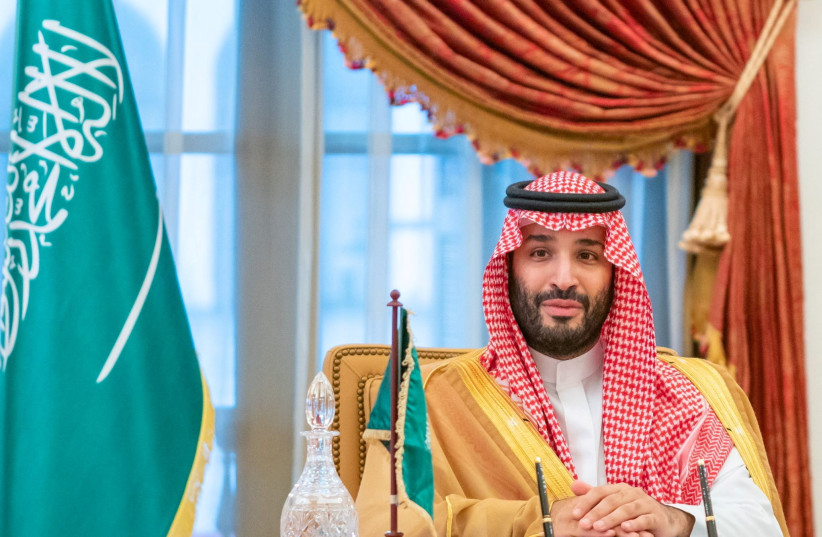Those wonderful folks who gave us the 1973 oil embargo with its infuriatingly long lines at the gas stations have just sprung another October surprise that is already causing pain at the gas pump.
The original embargo was aimed at punishing the US and other democracies for supporting Israel in the Yom Kippur War. This time our Saudi “friends” have teamed up with Vladimir Putin to boost Russia’s war against Ukraine and put the royal thumb on the scales in next month’s midterm Congressional elections.
The 1973 attempt boomeranged. Public sympathy grew for Israel and branded the Saudis and their Arab allies as unreliable and unfriendly. That may be happening again.
Why is it happening again?
This time the Saudis partnered with Russia to drive up oil prices at the pump in the US weeks before the midterms as a ploy to tilt the election toward MAGA Republicans who are seen as pro-Putin and pro-Big Oil. They’ll expect Trump followers in Congress to run interference against any Biden countermove.

Crown Prince Mohammed bin Salman, the de facto Saudi ruler, has personally invested $3 billion of state funds in private capital ventures run by the former president’s son-in-law and his treasury secretary.
The OPEC Plus (that’s the usual suspects, plus Russia) decision was a calculated slap in the face of Joe Biden. The president called it “a disappointment”; I suspect he was more colorful in private. His press secretary, Karine Jean-Pierre, was blunt. This means “OPEC Plus is aligning with Russia.”
The timing was noteworthy. In Ukraine, Putin’s forces were suffering some humiliating defeats while in the US gas prices and inflation were dropping.
The Saudi move is seen as helping Putin finance his war in Ukraine and help elect Trump followers who want to cut back Washington’s support for the Zelensky government, which rebuffed the former president’s “perfect phone call” demanding political dirt on the Bidens in exchange for needed arms.
Russia badly needs money and is betting that a cold, hard winter with limited and costly fuel supplies will convince Europeans to scale back their support for Ukraine.
Can Biden afford to let the Saudis smack him down with impunity? His fist-bump diplomacy during his July visit to the kingdom was a humiliating failure. His public and private calls for increased oil supplies were dramatically rebuffed.
Intentionally.
A Washington Post editorial suggested MBS, as the prince is known, was “doubling down on hostility toward the president, in retaliation for the latter’s – accurate – depiction of him as” responsible for the 2018 murder of Jamal Khashoggi, the Saudi-born contributor to that paper.
Candidate Biden called the kingdom a “pariah,” but toned down his rhetoric when visiting Jeddah in July. He never raised the Khashoggi killing in public, though he said he did in private. MBS was behind the assassination, according to a CIA report suppressed by the Trump administration but largely released by Biden.
The president was trying to persuade the Saudis to increase oil production, but he failed. The homicidal Prince Bonesaw was angry with Biden for the criticism of his and the kingdom’s abysmal human rights behavior. MBS was reportedly looking for revenge, and now he is taking it.
Nearly every president since FDR has treated the Saudis like the tail that wags the dog. Over the years the kingdom has proven reliably unreliable.
Democrats in Congress are calling for a long overdue reassessment of America’s reliably unreliable erstwhile ally. Some are calling for limits on American weapons, technology and strategic protection, starting with the removal of troops and Patriot missile batteries stationed in the kingdom. Former Lt. Col. Alexander Vindman has suggested on Facebook sending those Patriots to Ukraine, a better and deserving ally with a genuine need.
A Center for Strategic and International Studies analysis said the Saudis “don’t want a close partnership with the US on issues of energy and economics” but want to keep strategic ties while they move to strengthen links with Russia and China. That should worry Washington about the safety of American technology and secrets.
Biden cannot afford to let this public slap go unanswered. He may have to wait until after the midterm elections and possibly after the Ukraine crisis is resolved for any major moves, but there are steps he can take now.
A good place to begin would be with a full reassessment of the strategic relationship, including pending arms sales, the supply of spare parts and technology transfers. The OPEC decision can be an impetus for accelerating alternative energy reforms. Both the Saudis and Russia fear a lessening of Western dependence on fossil fuels, which would threaten their economies and power.
Biden can release the full, unredacted CIA report on the Khashoggi murder and MBS’s role. He can tell a federal court hearing next month that his administration opposes MBS’s lawyer’s request to grant the prince legal immunity from a lawsuit over the Khashoggi killing.
The Saudis may threaten to take their arms business to Moscow, but they should first consider the performance of Russian weapons, technology and doctrine in Ukraine.
The Saudis are not without friends in the US, starting with Big Oil, which shares their fear of alternative energy sources. Then there’s the defense industry and the Pentagon which don’t want to lose their favorite cash customer. The Department of Defense actually makes a commission on those arms sales.
It’s time for American presidents to stop treating Saudi oil as the oxygen we need for survival. The US is energy independent; it is the world’s number one producer of crude oil (Saudi Arabia and Russia are second and third).
On a visit to survey hurricane damage in Florida last week, Biden was heard on a hot mike telling a local mayor, “No one f***s with a Biden.” Prove it, Joe.
The writer is a Washington-based journalist, consultant, lobbyist and former AIPAC legislative director.
